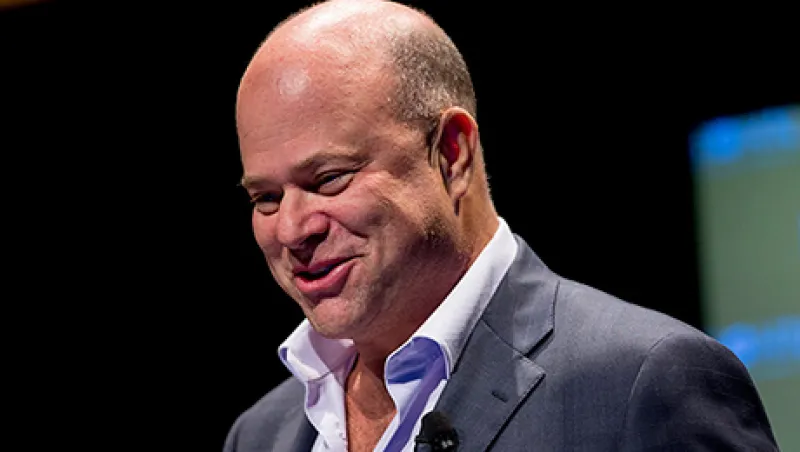Appaloosa Management founder David Tepper, whose pronouncements are often market-moving, is telling investors he remains cautious on the stock market heading into the final weeks before the presidential election.
Tepper is currently somewhat long the stock market and somewhat short bonds, according to an individual who is familiar with the thinking of the hedge fund manager and his firm. Tepper is said to be mulling whether to short the bond market even further, since he is anticipating the U.S. Federal Reserve will raise interest rates sometime in the near future. If the central bank doesn’t raise rates, it could be a bad sign that the Fed thinks the economy is weaker than it appears.
Tepper, whose hedge funds have posted low-single-digit gains so far this year, has perhaps the best long-term track record of any discretionary hedge fund manager working today. Tepper is said to think that certainty over who will win the November presidential and congressional races will play a big role in what direction the stock market heads. According to the person familiar with his thinking, Tepper thinks the best-case scenario for the markets is for Hillary Clinton to win the presidential election and the Republican party to retain control of Congress. He even thinks the markets will be okay if Clinton wins and the Democrats win just the Senate, since he thinks Republicans will still be able to retain enough votes to allow them to filibuster any initiatives from the left that could potentially spook the markets.
Tepper is said to be most wary of a Democratic president as well as a Democratic House and Senate, since he doesn’t believe the party has a strong business-friendly platform. If the Dems do score a hat trick in the elections, he thinks banks and pharmaceutical stocks could potentially be targeted more than other sectors.
Tepper is an eclectic, opportunistic investor whose funds hold a variety of instruments, from equities to credit to fixed income. He is known for generating very big gains — especially following years in which he produced hefty losses — and is one of very few hedge fund managers whose performance has improved as his firm’s assets have grown. When Tepper was inducted into Institutional Investor’s Alpha’s Hall of Fame, a $1 million investment the day his fund opened in 1993 was worth $149 million at the time of publication in September 2013.
At the end of the second quarter, Appaloosa cut the value of its U.S. stock portfolio to $3.8 billion, from around $5 billion the previous quarter. The March quarter’s total assets exclude the assumption that call options on two broad market exchange-traded funds (ETFs) had been fully exercised.
At the end of the second quarter, Appaloosa’s largest individual stock position was in the “C” shares of Alphabet, the parent company of Google. The stock, Appaloosa’s second-largest long holding in the first quarter, returned 2.5 percent in the first nine months of the year. Its next two largest positions were in two energy companies whose merger was called off in late June: Energy Transfer Partners and Williams Partners. These three stocks alone accounted for more than 30 percent of the firm’s U.S. stock portfolio.
Appaloosa’s main funds gained about 11 percent in 2015 despite Tepper turning very cautious last summer. That’s when overall market volatility ramped up after China devalued its currency, while investors wondered whether the Fed would finally raise interest rates for the first time since the financial crisis.
At the end of last year, Tepper returned about $2 billion to investors. That left the firm with $18 billion under management at the start of 2016, making it the twenty-eighth largest hedge fund firm in the world, according to Alpha’s annual Hedge Fund 100 ranking.
Earlier this year, Tepper moved his firm from Short Hills, New Jersey, to Miami Beach, Florida, although he still spends a fair amount of time in the Garden State.







